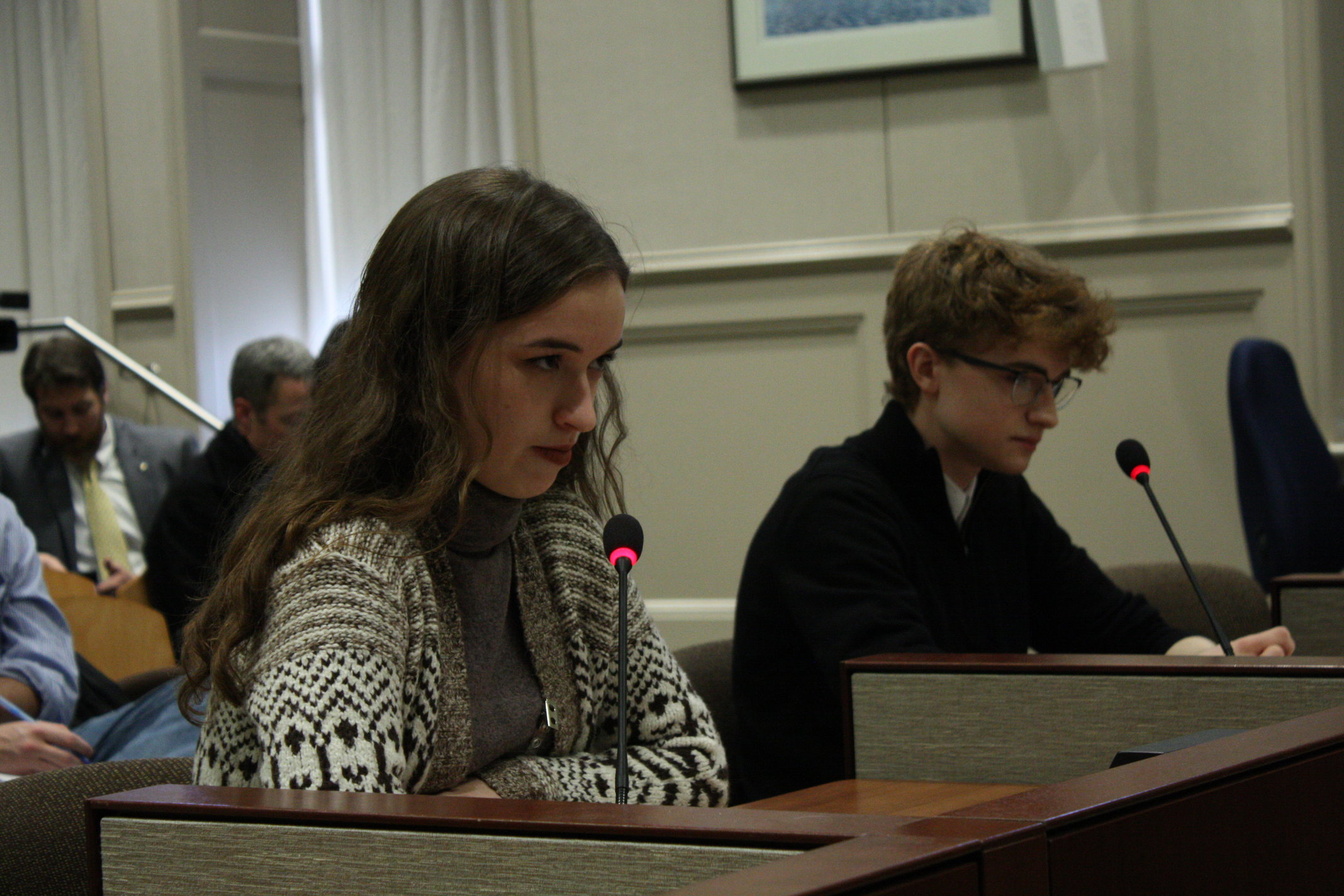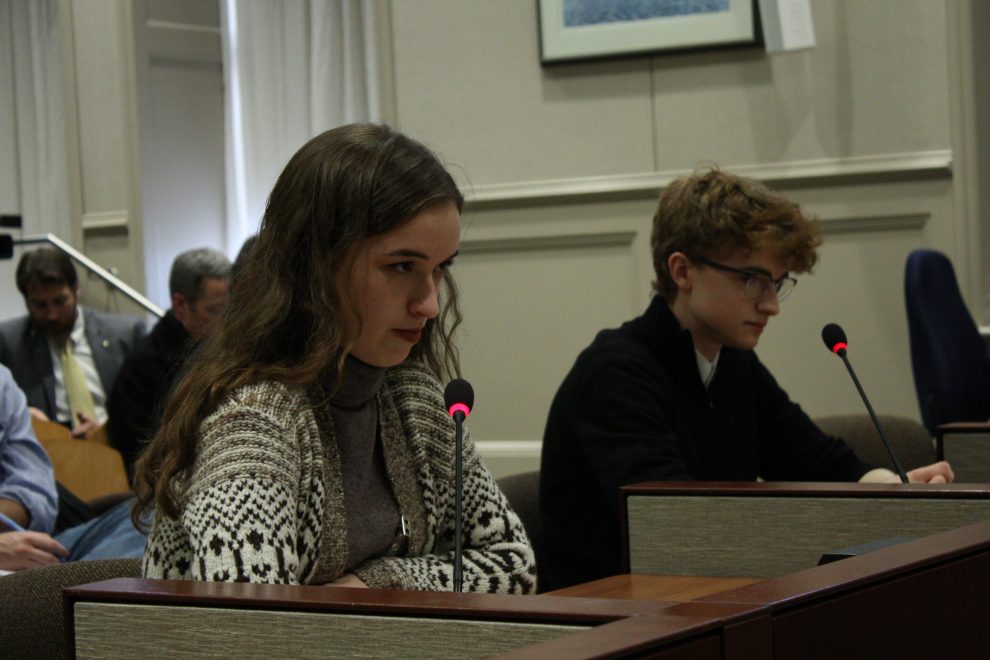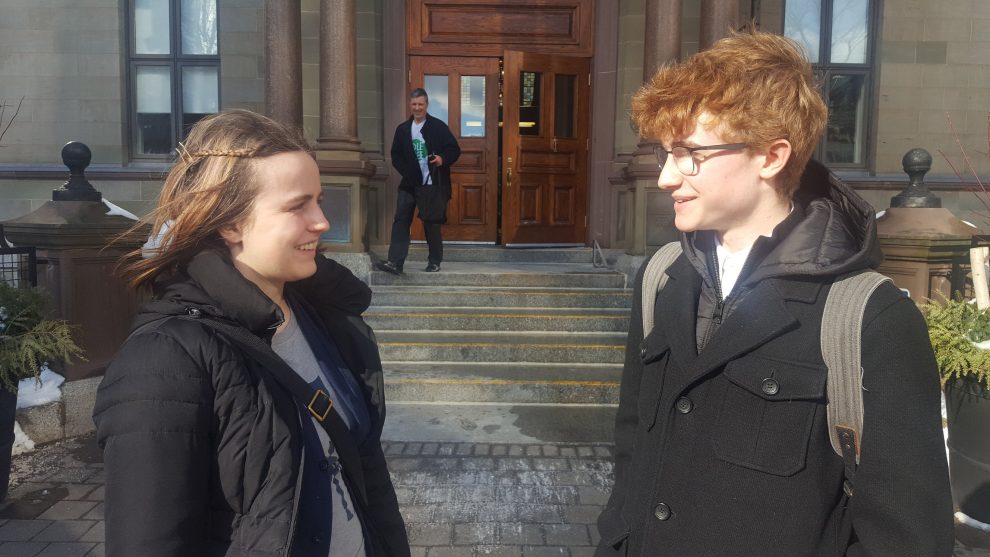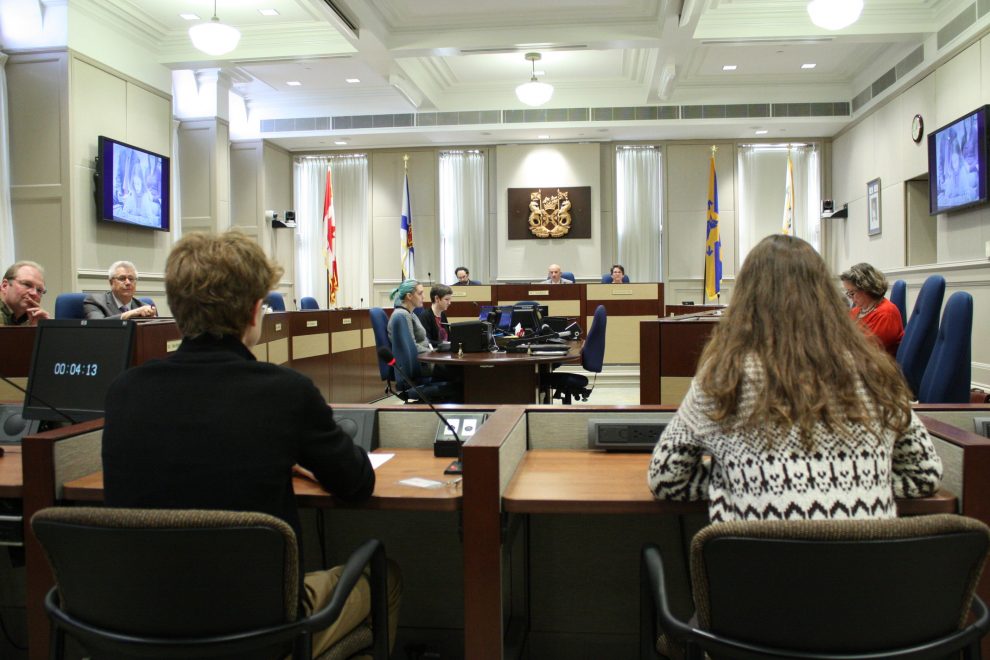Climate
Halifax gets a C+ on its environmental report card
iMatter presented the report card to City Council

caption
Cameron Yetman and Maggie Ivimey presenting the report card
caption
Maggie Ivimey and Cameron Yetman presenting the report cardLike an underachieving teenager, Halifax has received a C+ on its environmental report card.
The report card was organized by iMatter Halifax and presented by one of its members, Cameron Yetman, and the head of the environmental committee at Halifax West High School, Maggie Ivimey. They presented it to the Environment and Sustainability Committee at City Hall on Thursday.
iMatter Youth Movement was created in the United States and gives tools to young climate activists who want to start start conversations about climate change and advocate for solutions on the local level.
“This is important to me because I was born here and lived here for my entire life. Halifax is my home,” said Yetman to the committee.
Each Youth Climate Change Report Card, which as been given out by iMatter representatives in cities like Des Moines and Toronto, is based on municipal data found in public records and reports. The data is then put together using a template created by climate scientist and former NASA researcher Dr. Jim Hansen. Communities are graded on their efforts in five categories: a zero-emissions climate action plan; renewable energy programs; waste management; carbon removal; and youth involvement.

caption
Lilly Barraclough and Cameron Yetman are the two students behind iMatter Halifax.The first and most heavily-weighted category – which made up 50 per cent of the final grade – was for having a “climate action plan” that guarantees zero or net zero emissions by 2040. The municipality received a C- in this field because they do not currently have a zero-emissions plan.
iMatter says in the report card that “reducing greenhouse gas emissions is the most important step to address the climate crisis” and will have the most impact on future generations.
“You may not see the worst of the effect in your lifetime, but I will and my kids will,” said Ivimey to the committee.
The grades weren’t all bad, however. The report card praised the municipality’s efforts in waste management, especially for giving Haligonians various ways to dispose of waste and gave HRM an A+.
The subject that got the most response from councillors was the last category, youth involvement. Halifax did not get a grade because it does not “have any youth formally involved in the process of creating and executing climate related policies and actions,” the report card said.
That is one of the reasons Yetman decided to get involved with iMatter in the first place. Yetman is a first-year student at the University of King’s College and decided to join when he heard about it on campus.
“I have a lot of living and growing up to do here,” he says to the committee. “The environmental future that is decided by us now is the one I am going to live for the rest of my life.”
Richard Zurawski of District 12, who is also Yetman’s councillor, says he was very impressed with Yetman and Ivimey, and invited them both to have a coffee together in the future.
“Without youth looking at the future, I’m becoming one of those people losing faith in our ability to manifest a change,” said Zurawski. “You coming in with your group gives me enormous hope. And my door is always open.”

caption
Cameron Yetman and Maggie Ivimey in front of the councilCouncillor Bill Karsten was also concerned to hear about the lack of youth involvement in policy making. He says he will commit to looking into having a youth council that would be associated with the community council. “That’s a commitment that I give to you,” he said. “I will look to find a way to reengaging the youth.”
C+ might give the impression that Halifax is doing a terrible job in terms of being ecofriendly, but Yetman says the report card is meant to be tough.
“The final grade is a C+. A C+ is not bad of course, higher than many cities that have been graded,” said Yetman to the committee. “Unfortunately, it’s not quite as high as it could be. And in our current climate crisis, the planet stubbornly refuses to offer retests.”

